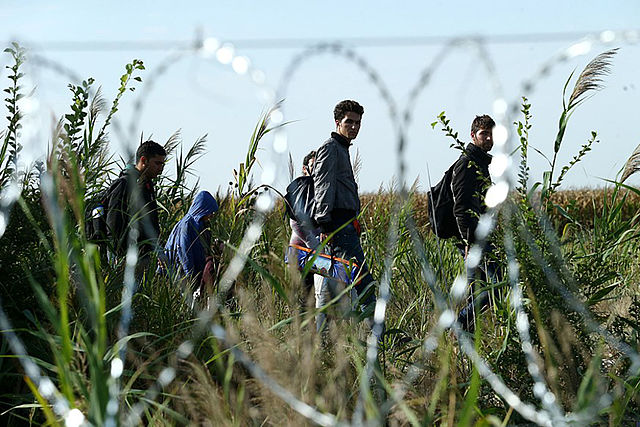Preliminary calculations by the EU border police Frontex indicate that in 2023, there were about 380,000 instances of unauthorized border crossings at the EU’s external border, mostly through the Mediterranean region.
“This marks the highest level since 2016 and constitutes a 17 percent increase from the figures in 2022, indicating a consistent upward trend over the past three years,” Frontex said Tuesday in a statement.
One in four of the migrants came from Syria, the report says. The other nations sending the most migrants were theWest African nation of Guinea and Afghanistan; the three accounted for more than a third of those detected.
Figures cited predominantly focused on the Central Mediterranean, Western Balkans, and Eastern Mediterranean routes for illegal entry into the EU.
There has been a significant rise in African migrants, particularly from West Africa, constituting almost half of all identified migrants, according to the statistics.
Frontex data also indicated that women constituted 10 percent of the irregular crossings last year, mirroring the percentage of children.
Hans Leijtens, Executive Director of Frontex, emphasized the humanitarian aspects of migration.
“These figures represent not just statistics but real people,” he said.
The 2,500-strong EU border guard manages migratory flows and contributes to preventing and detecting cross-border crimes, including migrant smuggling, human trafficking, and terrorism.
As emphasized in Interpol documents, despite a clear distinction between human trafficking and migrant smuggling, there can be links between the two.
Interpol warned that migrant smugglers “take advantage of people who want to leave their home countries to escape poverty, conflict, and crises, or simply want to seek a better life.”
“Even if irregular migrants generally enter into the journey voluntarily, they are often exposed to significant risks, including that of being trafficked, kidnapped or dying in transit to their destinations,” according to Interpol.
Conversely, human trafficking is driven by specific purposes, including “sexual exploitation, labor exploitation, forced criminality, and organ removal, among other forms of exploitation.”
The European Commission’s renewed EU action plan against migrant smuggling 2021-2025, highlights that migrant smuggling is a lucrative business for criminal networks, with an estimated annual turnover reaching multiple billion euros worldwide.
In June 2021, when the document was adopted, the Commission emphasized that migrant smuggling is increasingly intertwined with severe human rights violations and fatalities, particularly in cases involving sea routes.
It also noted that migrant smuggling networks are connected to other forms of serious and organized crime, including terrorism, human trafficking, and money laundering.

